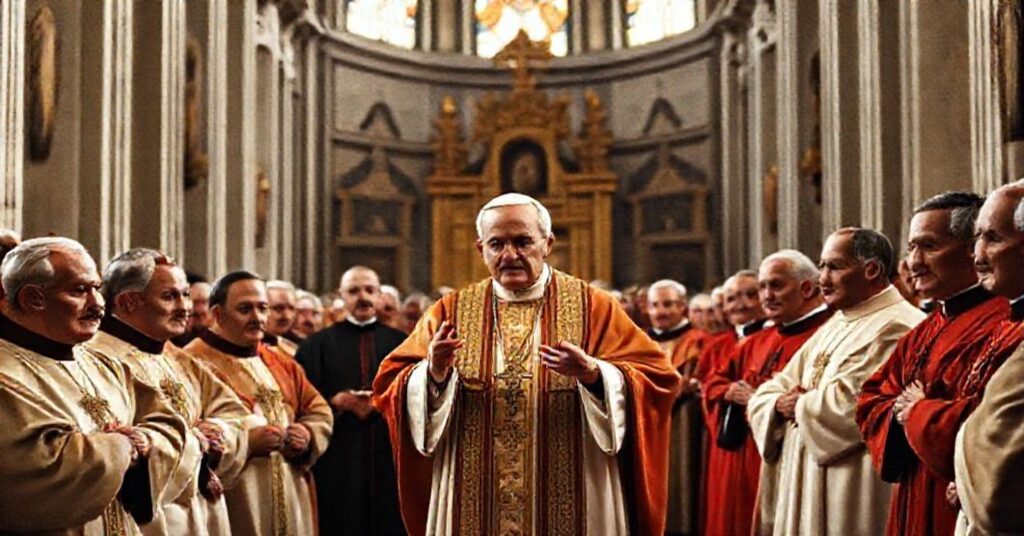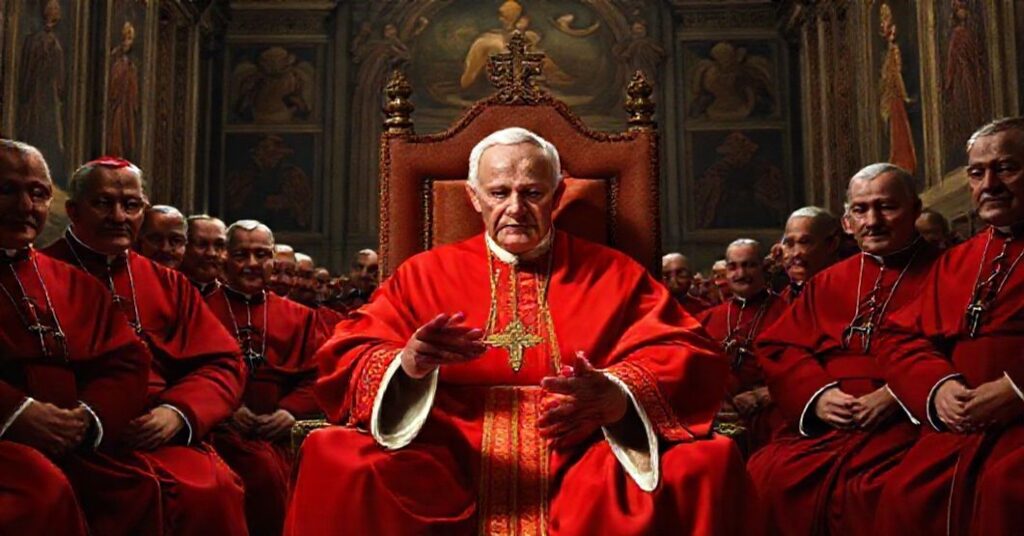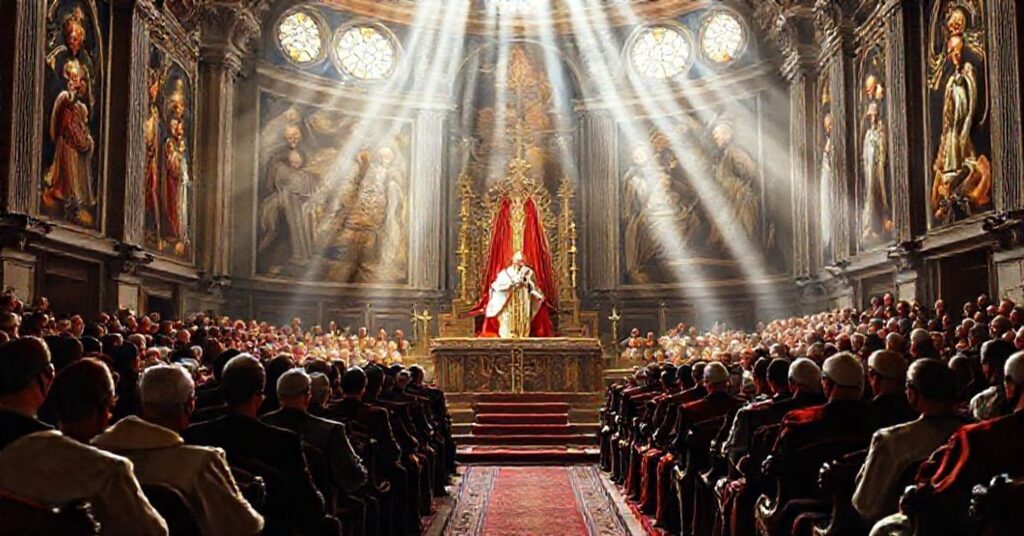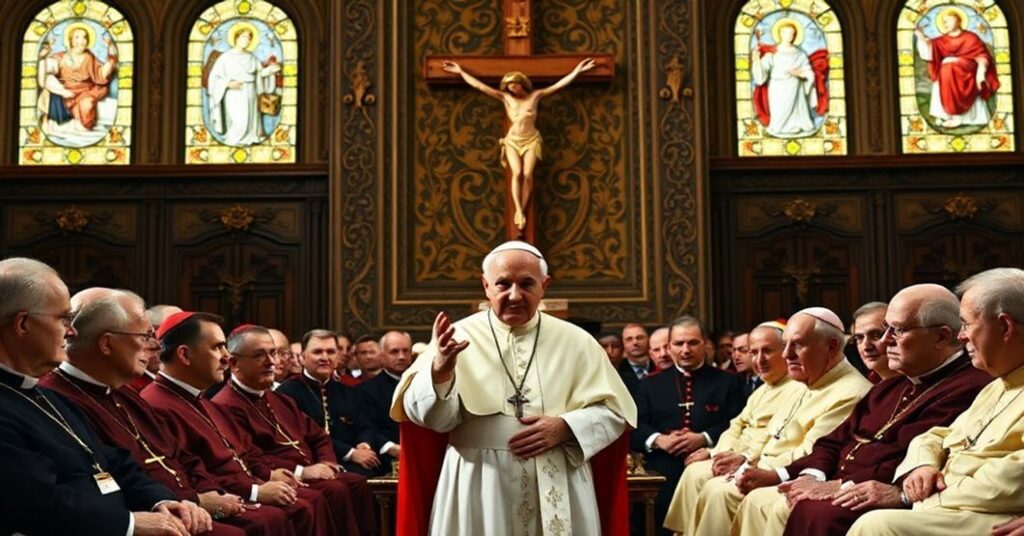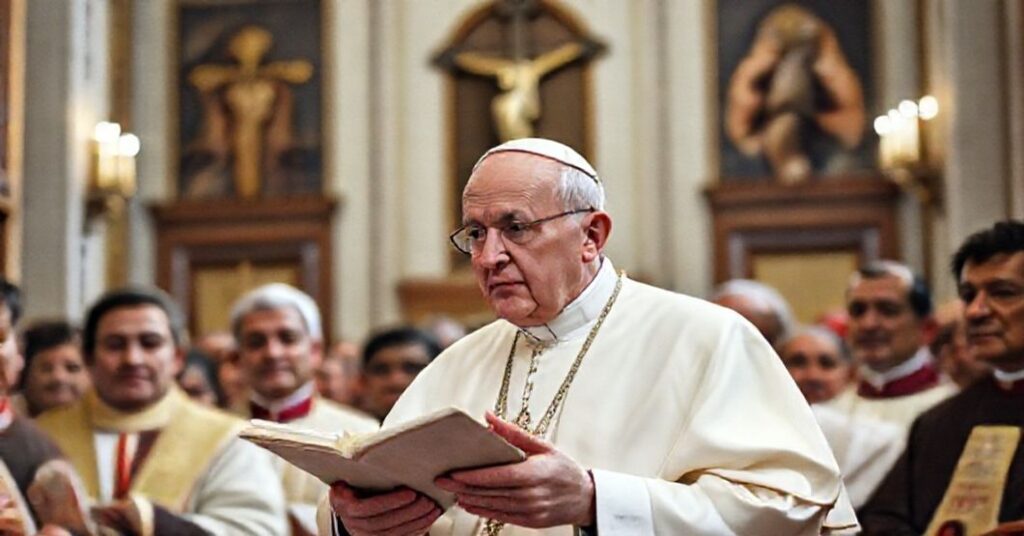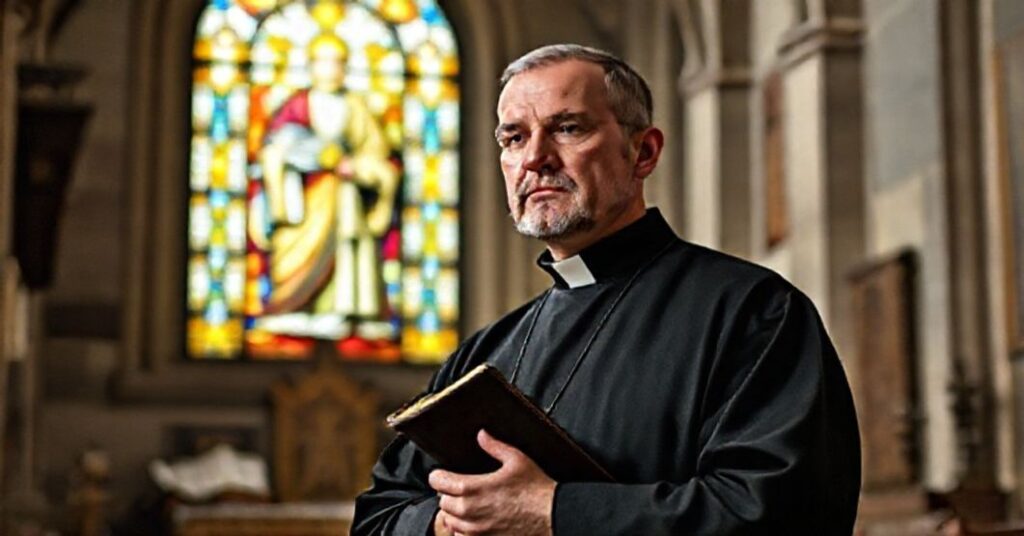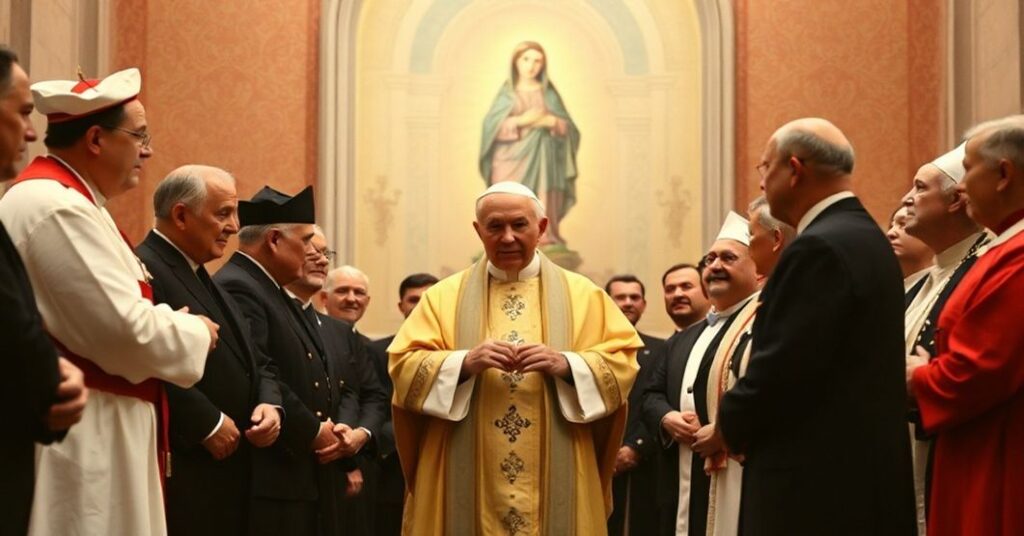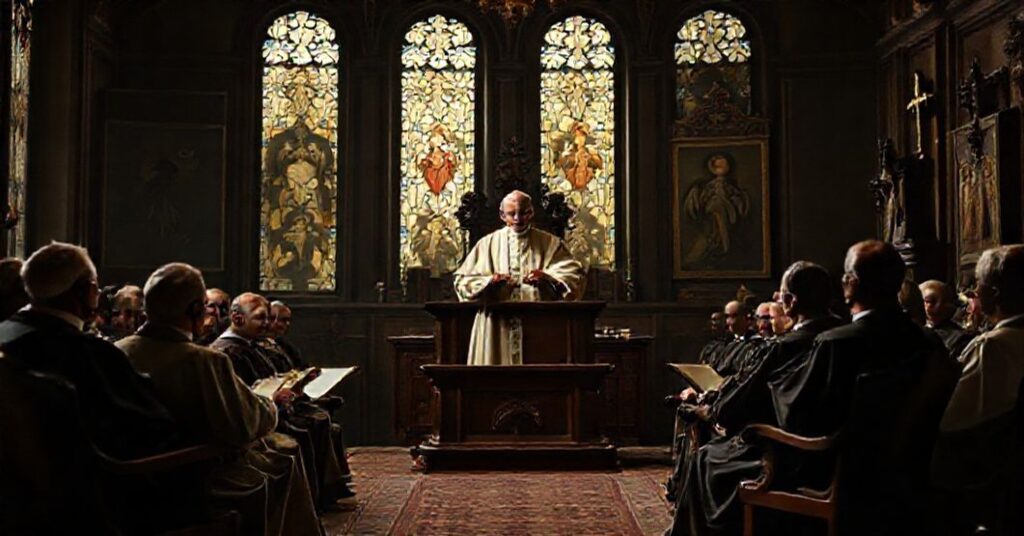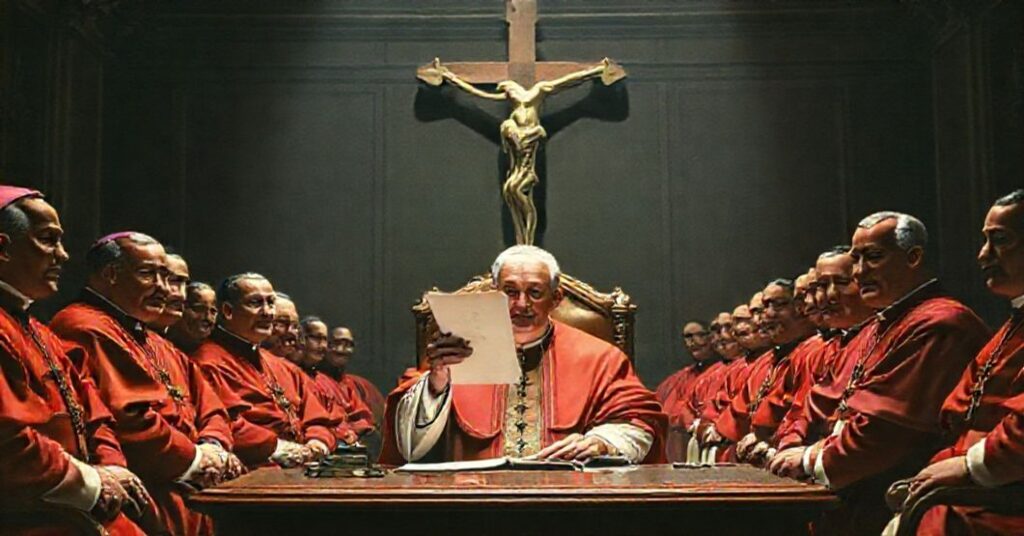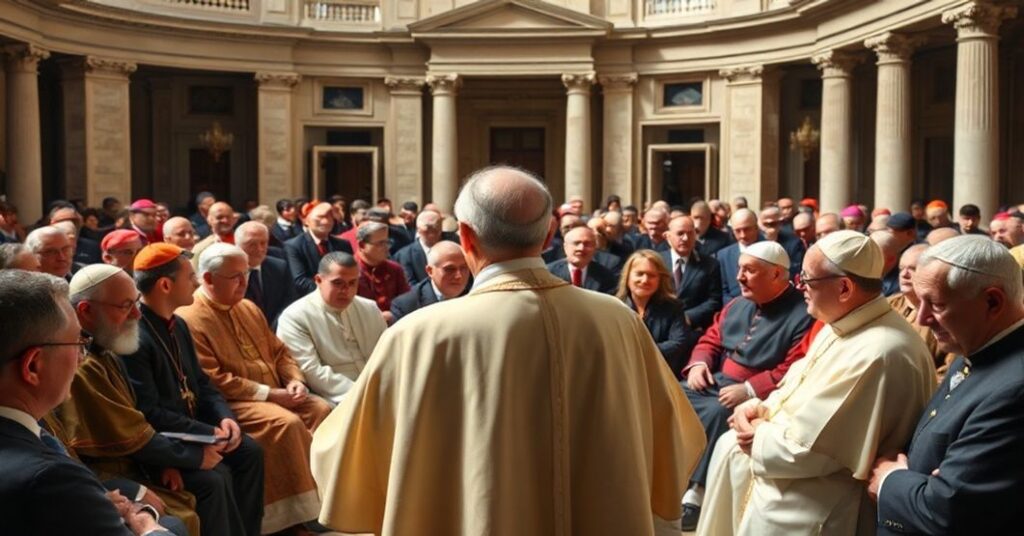Allocutio Ioannis XXIII (1962.12.08)
The speech of John XXIII on 8 December 1962, closing the first period of Vatican II, celebrates the Council as a luminous epiphany of the “one, holy, catholic and apostolic Church,” extols the presence of civil authorities, glorifies the slow and “pastoral” method, presents the conciliar commissions as continuing the work between sessions, and prophesies a “new Pentecost” and an expansion of Christ’s Kingdom and peace in the world through implementation of conciliar norms. It is a self-congratulatory manifesto of humanistic optimism in which the alleged “ecumenical council” is exalted above all previous councils as a unique event for the Church and “civilization.” This text is not a Catholic allocution but the early self-unmasking of the conciliar revolution that replaces the reign of Christ the King with the cult of man and the sovereignty of the world.

